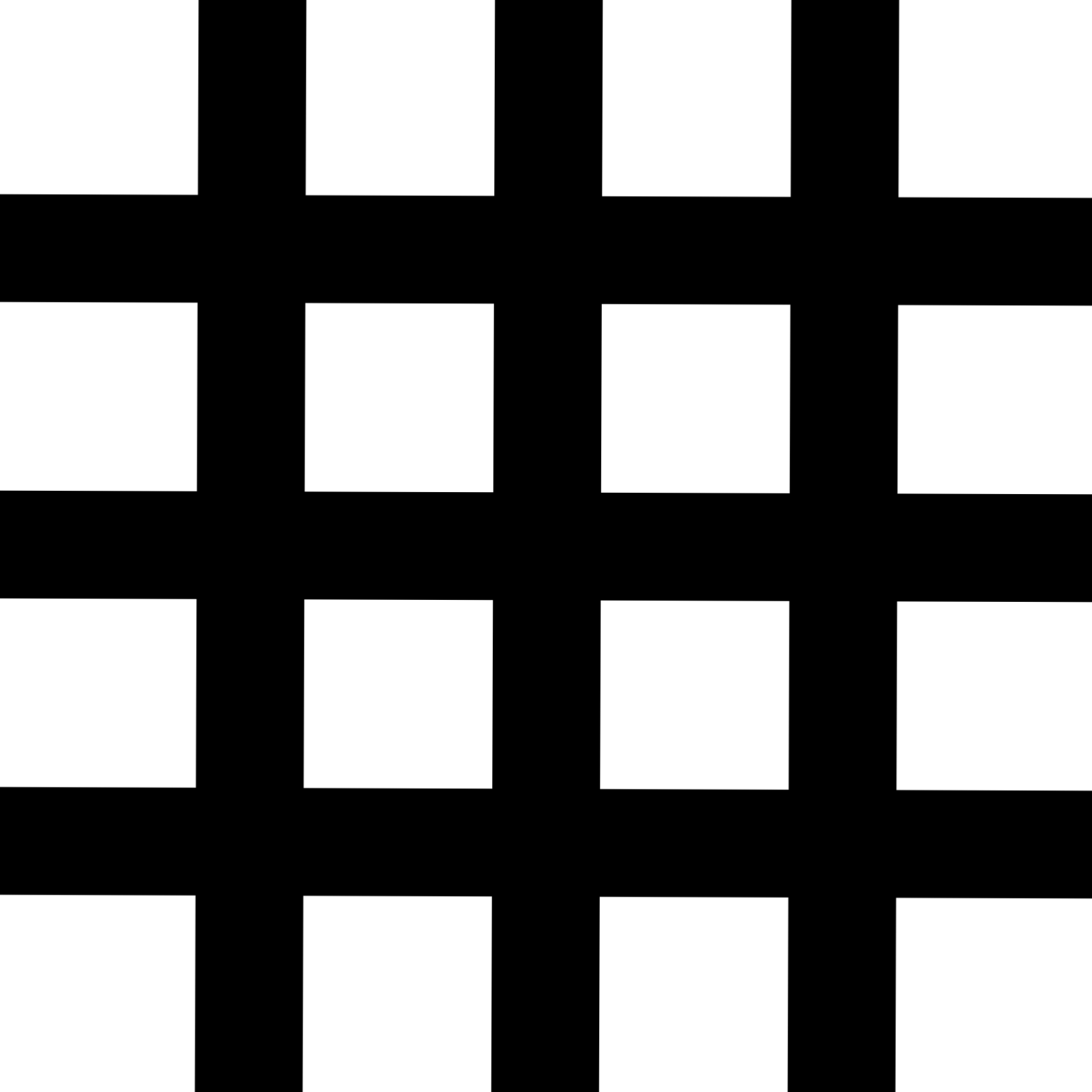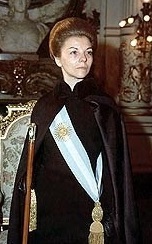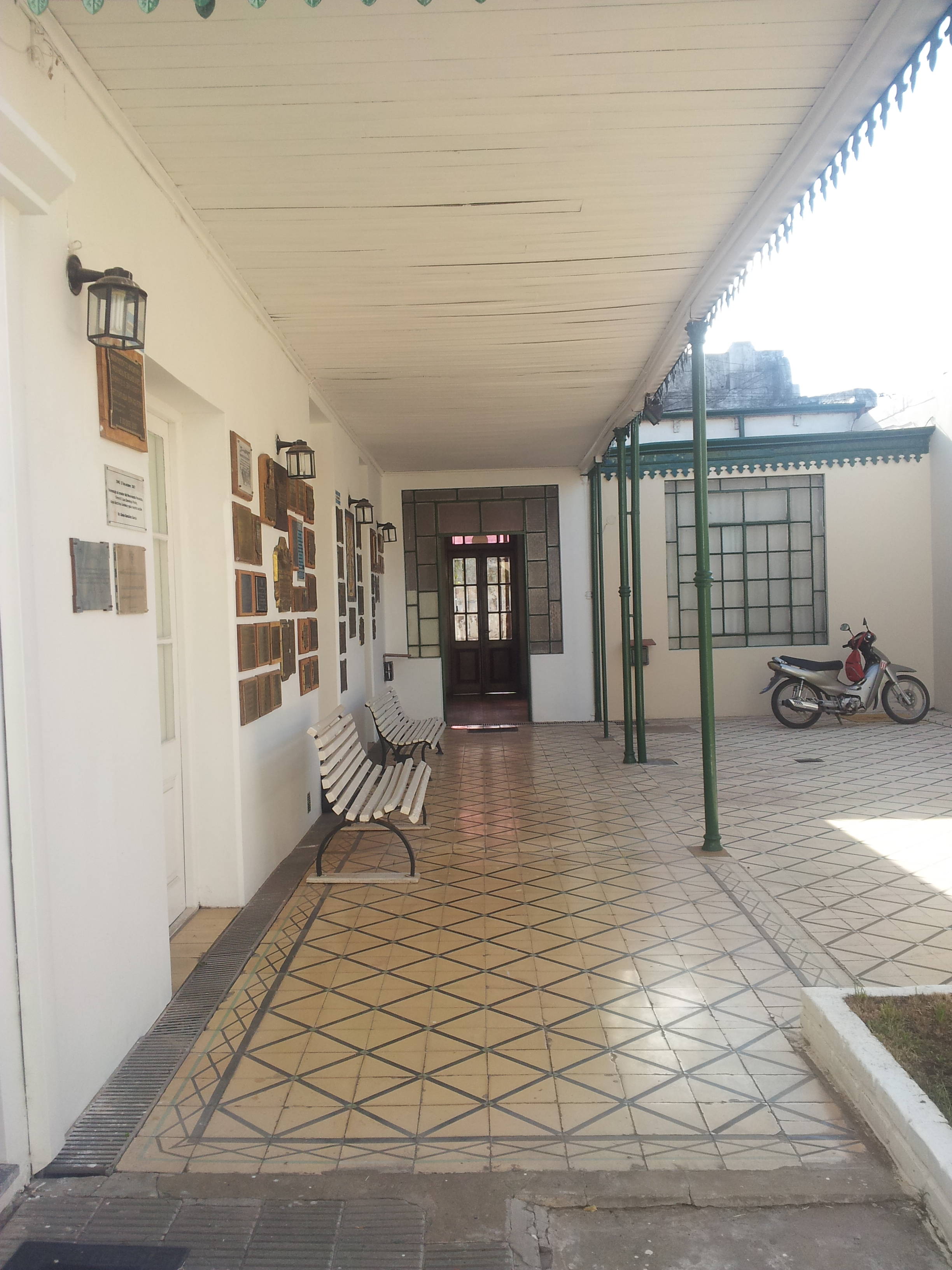|
Iron Guard (Argentina)
The Iron Guard (; abbreviated as GH) was an Argentine political organisation with its headquarters in Buenos Aires. It followed the political movement of Peronism, more precisely its orthodox variant. It was founded in 1962 by Alejandro "Gallego" Álvarez and Héctor Tristán, both members of the Peronist resistance. These two were against the policies of Augusto Vandor and the dictatorship of Juan Carlos Onganía. Left-wing members like Roberto Grabois, a socialist, would later join the Iron Guard. Other notable members were Amelia Podetti (a philosopher and writer), Julio Bárbaro (a politician) and Roberto Roitman (an economist). The Iron Guard was related to the Student National Front (FEN). After the death of Juan Perón, the group was dissolved, although a "sector" led by Álvarez continued its political activities. This sector allied with Isabel Perón in 1975 to avoid a possible coup. See also * Iron Guard The Iron Guard () was a Romanian militant revolution ... [...More Info...] [...Related Items...] OR: [Wikipedia] [Google] [Baidu] |
Alejandro "Gallego" Álvarez
Alejandro is the Spanish form of the name Alexander. Alejandro has multiple variations in different languages, including Aleksander (Czech, Polish), Alexandre (French), Alexandros (Greek), Alsander ( Irish), Alessandro (Italian), Aleksandr (Russian), and Alasdair (Gaelic). People with the given name Alejandro * Alejandro Alvizuri, Peruvian backstroke swimmer * Alejandro Amenábar, Chilean-born Spanish director * Alejandro Aranda, American singer, musician, and reality television personality * Alejandro Arguello, Mexican footballer * Alejandro Avila, Mexican TV actor * Alejandro Awada, Argentine actor * Alejandro Balde, Spanish Footballer * Alejandro Betts, Argentine historian * Alejandro Bermúdez, Colombian swimmer * Alejandro Bustillo, Argentine architect * Alejandro Carrión, Ecuadorian poet and novelist * Alejandro Casañas, Cuban hurdler * Alejandro Castillo, Mexican footballer * Alejandro Cercas, Spanish politician * Alejandro Chataing, Venezuelan architect * Alejandr ... [...More Info...] [...Related Items...] OR: [Wikipedia] [Google] [Baidu] |
San Miguel De Tucumán
San Miguel de Tucumán (), usually called simply Tucumán, is the capital and largest city of Tucumán Province, located in northern Argentina from Buenos Aires. It is the fifth-largest city of Argentina after Buenos Aires, Córdoba, Argentina, Córdoba, Rosario and Mendoza, Argentina, Mendoza and the most important city of the northern region. The Spanish conquistador :es:Diego de Villarroel, Diego de Villarroel founded the city in 1565 in the course of an expedition from present-day Peru. Tucumán moved to its present site in 1685. Overview The city is bordered on the north by Las Talitas (Tafí Viejo, Tucumán, Tafí Viejo), on the east by Banda del Río Salí and Alderetes (Tucumán), Alderetes (Cruz Alta), on the west by the city of Yerba Buena, Tucumán, Yerba Buena, and on the south by Lules. The city is located on the slopes of the Aconquija mountains, the easternmost mountain range before the large Gran Chaco, Chaco-Pampas, Pampean flats. It is the commercial center ... [...More Info...] [...Related Items...] OR: [Wikipedia] [Google] [Baidu] |
Political Organisations Based In Argentina
Politics () is the set of activities that are associated with making decisions in groups, or other forms of power relations among individuals, such as the distribution of status or resources. The branch of social science that studies politics and government is referred to as political science. Politics may be used positively in the context of a "political solution" which is compromising and non-violent, or descriptively as "the art or science of government", but the word often also carries a negative connotation.. The concept has been defined in various ways, and different approaches have fundamentally differing views on whether it should be used extensively or in a limited way, empirically or normatively, and on whether conflict or co-operation is more essential to it. A variety of methods are deployed in politics, which include promoting one's own political views among people, negotiation with other political subjects, making laws, and exercising internal and external forc ... [...More Info...] [...Related Items...] OR: [Wikipedia] [Google] [Baidu] |
Iron Guard
The Iron Guard () was a Romanian militant revolutionary nationalism, revolutionary Clerical fascism, religious fascist Political movement, movement and political party founded in 1927 by Corneliu Zelea Codreanu as the Legion of the Archangel Michael () or the Legionary Movement (). It was strongly Criticism of democracy, anti-democratic, Anti-communism, anti-communist, and Antisemitism, anti-semitic. It differed from other European far-right movements of the period due to its spiritual basis, as the Iron Guard was deeply imbued with Romanian Orthodox Church, Romanian Orthodox Christian mysticism. In March 1930, Codreanu formed the Iron Guard as a paramilitary branch of the Legion, which in 1935 changed its official name to the "Totul pentru Țară" party—literally, "Everything for the Country". It existed into the early part of the Second World War, during which time it came to power. Members were called Legionnaires or, outside of the movement, "Greenshirts" because of the p ... [...More Info...] [...Related Items...] OR: [Wikipedia] [Google] [Baidu] |
Isabel Perón
Isabel Martínez de Perón (, born María Estela Martínez Cartas; 4 February 1931) is an Argentine politician who served as the 41st president of Argentina from 1974 to 1976. She was one of the List of elected and appointed female heads of state and government, first female republican heads of state in the world, and the first woman to serve as President (government title), president of a country. Perón was the third wife of President Juan Perón. During her husband's third term as president from 1973 to 1974, she served as both the 29th List of vice presidents of Argentina, vice president and First Ladies and Gentlemen of Argentina, first lady of Argentina. From 1974 until her resignation in 1985, she was also the second Justicialist Party#Leaders, President of the Justicialist Party. Following her husband's death in office in 1974, she served as President for almost two years before the military took over the government with the 1976 Argentine coup d'état, 1976 coup. Per� ... [...More Info...] [...Related Items...] OR: [Wikipedia] [Google] [Baidu] |
Juan Perón
Juan Domingo Perón (, , ; 8 October 1895 – 1 July 1974) was an Argentine military officer and Statesman (politician), statesman who served as the History of Argentina (1946-1955), 29th president of Argentina from 1946 to Revolución Libertadora, his overthrow in 1955 and again as the 40th president from 1973 to his death in 1974. He is the only Argentine president elected three times and holds the September 1973 Argentine presidential election, highest percentage of votes in clean elections with universal suffrage. Perón is arguably the most important and controversial Argentine politician of the 20th century and his influence extends to the present day. Perón's ideas, policies and movement are known as Peronism, which continues to be one of the major forces in Argentine politics. On 1 March 1911, Perón entered military college, graduating on 13 December 1913. Over the years, he rose through the military ranks. In 1930, Perón supported the coup against President Hipólito ... [...More Info...] [...Related Items...] OR: [Wikipedia] [Google] [Baidu] |
Student National Front
A student is a person enrolled in a school or other educational institution, or more generally, a person who takes a special interest in a subject. In the United Kingdom and most commonwealth countries, a "student" attends a secondary school or higher (e.g., college or university); those in primary or elementary schools are "pupils". Africa Nigeria In Nigeria, education is classified into four systems known as a 6-3-3-4 system of education. It implies six years in primary school, three years in junior secondary, three years in senior secondary and four years in the university. However, the number of years to be spent in university is mostly determined by the course of study. Some courses have longer study lengths than others. Those in primary school are often referred to as pupils. Those in university, as well as those in secondary school, are referred to as students. The Nigerian system of education also has other recognized categories like the polytechnics and colleges of ... [...More Info...] [...Related Items...] OR: [Wikipedia] [Google] [Baidu] |
Julio Bárbaro
{ ...
Julio is the Spanish equivalent of the month July and may refer to: *Julio (given name) *Julio (surname) *Júlio de Castilhos, a municipality of the western part of the state of Rio Grande do Sul, Brazil * ''Julio'' (album), a 1983 compilation album by Julio Iglesias *Julio, a character in ''Romiette and Julio'' by Sharon M. Draper Other *Don Julio, a brand of tequila produced in Mexico * Hurricane Julio, a list of storms named Julio * Jules * ''Julie-O'', musical work for solo cello by Mark Summer *Julio 204 or JULIO 204, one of the first graffiti writers in New York City *Julio-Claudian dynasty, the first five Roman Emperors: Augustus, Tiberius, Caligula (also known as Gaius), Claudius, and Nero * Julius (other) Julius may refer to: People * Julius (name), a masculine given name and surname (includes a list of people with the name) * Julius (nomen), the name of a Roman family (includes a list of Ancient Romans with the name) ** Julius Caesar (100– ... [...More Info...] [...Related Items...] OR: [Wikipedia] [Google] [Baidu] |
Amelia Podetti
Amelia may refer to: Arts, entertainment, and media Films * ''Amélia'' (film), a 2000 Brazilian film directed by Ana Carolina * ''Amelia'' (film), a 2009 film based on the life of Amelia Earhart Literature * ''Amelia (magazine)'', a Swedish women's magazine * ''Amelia'' (novel), a 1751 sentimental novel by Henry Fielding * ''Amelia Bedelia'', a series of US children's books * Amelia Jane, a series of books by Enid Blyton * ''Amelia Rules!'', a series of American children's graphic novels Music * ''Amelia'' (Mimi Webb album), a 2023 album * ''Amelia'' (Laurie Anderson album), a 2024 album * ''Amelia'' (opera), music by Daron Hagen; libretto by Gardner McFall; story by Stephen Wadsworth * "Amelia" (song), a song by Joni Mitchell on her 1976 album ''Hejira'' * "Amelia", a song by The Mission, from the album ''Carved in Sand'' * "Amelia", a song by the Cocteau Twins on their 1984 album ''Treasure'' * "Amelia", a song by Prism on their 1977 album ''Prism'' * "Amelia", a 1972 s ... [...More Info...] [...Related Items...] OR: [Wikipedia] [Google] [Baidu] |
Socialist
Socialism is an economic ideology, economic and political philosophy encompassing diverse Economic system, economic and social systems characterised by social ownership of the means of production, as opposed to private ownership. It describes the Economic ideology, economic, Political philosophy, political, and Social theory, social theories and Political movement, movements associated with the implementation of such systems. Social ownership can take various forms, including State ownership, public, Community ownership, community, Collective ownership, collective, cooperative, or Employee stock ownership, employee.: "Just as private ownership defines capitalism, social ownership defines socialism. The essential characteristic of socialism in theory is that it destroys social hierarchies, and therefore leads to a politically and economically egalitarian society. Two closely related consequences follow. First, every individual is entitled to an equal ownership share that earns an ... [...More Info...] [...Related Items...] OR: [Wikipedia] [Google] [Baidu] |
Juan Carlos Onganía
Juan Carlos Onganía Carballo (; 17 March 1914 – 8 June 1995) was President of Argentina from 29 June 1966 to 8 June 1970. He rose to power as dictator after toppling the president Arturo Illia in a coup d'état self-named " Argentine Revolution". Onganía wanted to install in Argentina a paternalistic dictatorship modeled on Francoist Spain. While preceding military coups in Argentina were aimed at establishing temporary, transitional '' juntas'', the '' Revolución Argentina'' headed by Onganía aimed at establishing a new political and social order, opposed both to liberal democracy and to communism, which gave to the Armed Forces of Argentina a leading role in the political and economic operation of the country. Onganía implemented a rigid censorship that reached the press and all cultural manifestations such as cinema, theater and even poetry. When the Armed Forces replaced the radical president in government with General Juan Carlos Onganía, they interrupted an at ... [...More Info...] [...Related Items...] OR: [Wikipedia] [Google] [Baidu] |






